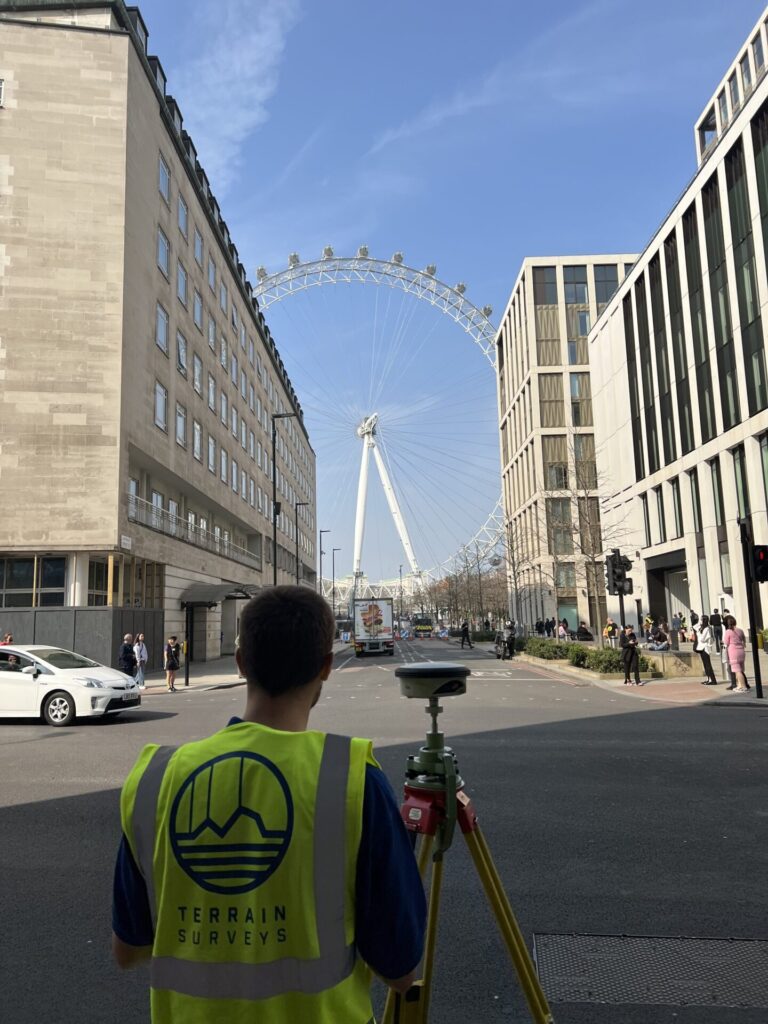A GPS survey is a land surveying method that uses Global Positioning System (GPS) technology instead of traditional surveying instruments. It enables surveyors to accurately map features on the earth’s surface by recording coordinate data from signals transmitted by GPS satellites.
A GPS receiver collects signals from multiple satellites in constellations that cover the earth’s surface. By receiving data from several satellites, the receiver applies a trilateration process to compute precise positions for survey points.
GPS surveys provide highly accurate positional data, making them invaluable for construction, engineering, and land development projects.
Why Use a GPS Survey?
GPS surveys are widely used for:
- Topographical surveys of large open spaces.
- Establishing control networks for construction projects.
- Structural monitoring to track movement over time.
Advantages of GPS Surveying
- Time and cost savings – Reduces the need for extensive survey equipment and personnel.
- Minimal reliance on ground control networks – Depending on project size, fewer control points may be required.
- Rapid data capture – Large areas can be surveyed much faster than traditional methods.
- Real-time data processing – Highly accurate position data can be recorded instantly, making GPS surveying ideal for construction projects that require immediate results.
What Equipment is Needed for a GPS Survey?
Conducting a GPS survey requires specialised survey-grade GPS equipment to achieve accurate results. The key components include:
1. GPS Receiver (Rover Unit)
A survey-grade GPS receiver is essential for capturing accurate position data. The receiver should be capable of accessing multiple satellite constellations, including:
- GPS (Global Positioning System)
- GLONASS (Russia’s satellite navigation system)
- Galileo (European Union’s satellite system)
- BeiDou (China’s satellite system)
For high-precision real-time positioning, an RTK (Real-Time Kinematic) GPS receiver is required.
2. Base Station or Network Service
A base station is required to enhance the accuracy of the GPS data. It continuously receives satellite signals at a fixed point and transmits real-time correction data to the rover unit.
Alternatively, surveyors can use a network service such as OS Net, maintained by Ordnance Survey, by obtaining a user license and SIM card.
3. Rugged Data Logger
A data logger is used to record GPS data in real-time. It must be weatherproof and durable to function effectively in various environmental conditions.
4. Survey Processing Software
Once fieldwork is completed, specialist software is needed to process the collected GPS data. This ensures that errors are corrected, and coordinates are accurately plotted.
5. CAD Software
To produce the final survey drawings, a CAD package is required. This software allows surveyors to visualise and present the collected data in a usable format for engineers, architects, and planners.
Limitations of GPS Surveys
While GPS surveys offer significant advantages, there are some limitations to consider:
- Dependence on Open Sky Visibility – GPS requires unobstructed access to satellites for optimal accuracy. The receiver must track at least four satellites with a good geometric spread.
- Reduced Accuracy in Built-Up Areas – In urban environments with tall buildings or heavily wooded areas, satellite signals can be blocked or distorted, leading to reduced accuracy and signal loss.
- Not Suitable for All Locations – GPS is less effective in tunnels, dense forests, and deep valleys where signals struggle to penetrate.
Why Choose Terrain Surveys for Your GPS Survey?
Terrain Surveys has extensive experience in GPS surveying and utilises state-of-the-art equipment to ensure highly accurate and efficient results. Our team of skilled surveyors understands both the benefits and limitations of GPS technology, ensuring data is captured and processed to the highest standards.
We work closely with our clients to tailor survey solutions to meet project-specific requirements, delivering precise, reliable, and cost-effective results.
Contact Us
For accurate and efficient GPS surveying services, contact Terrain Surveys today to discuss your project requirements.
